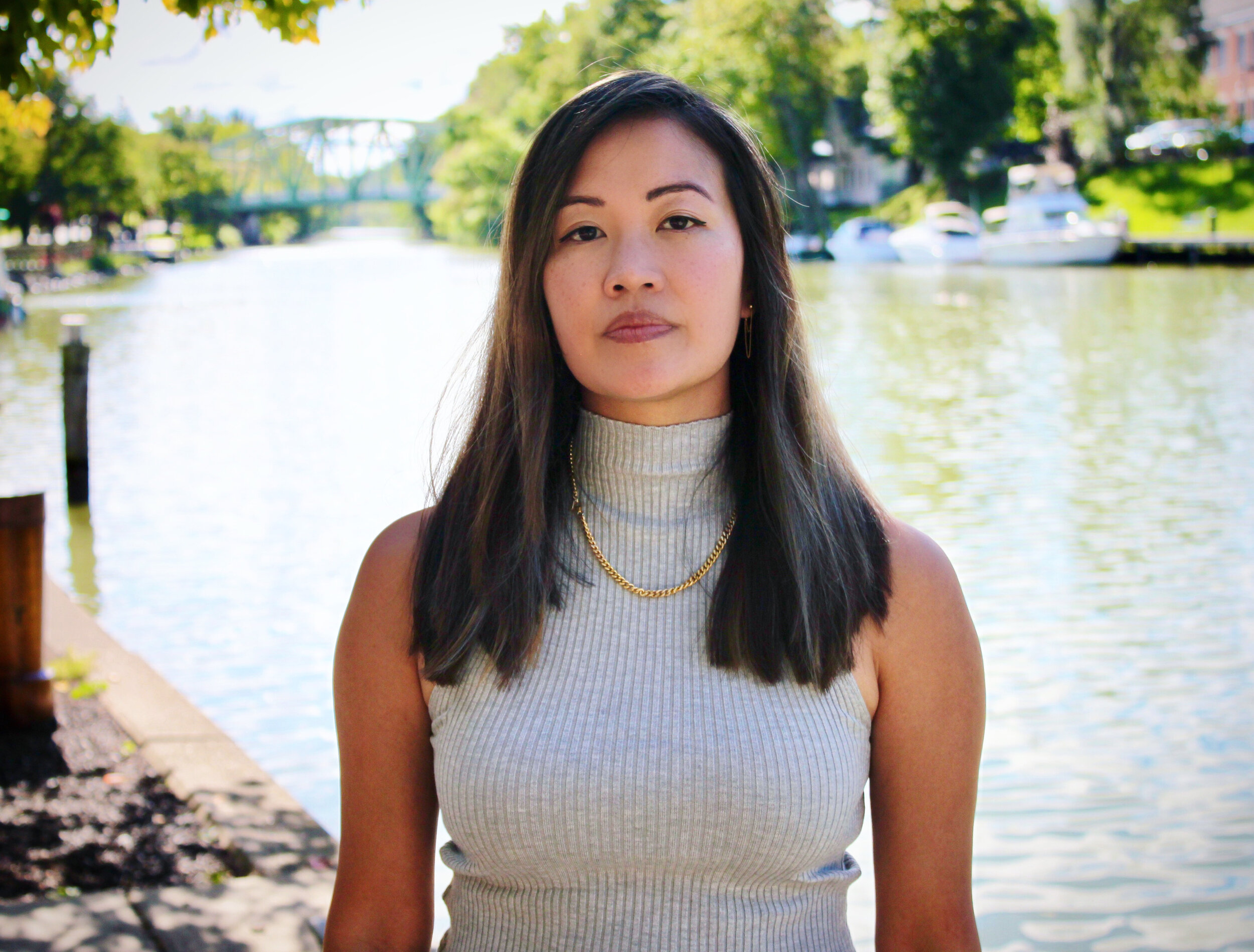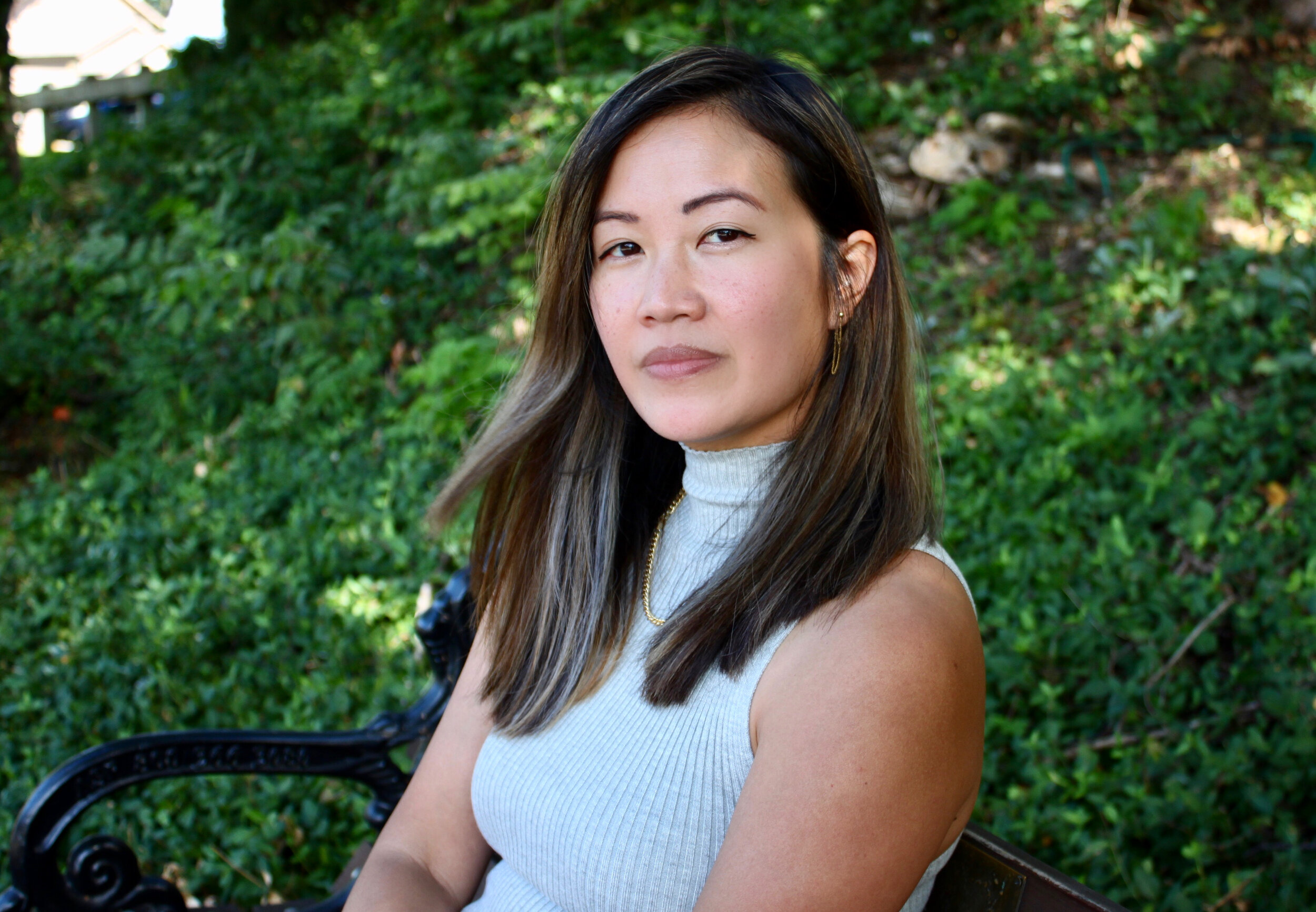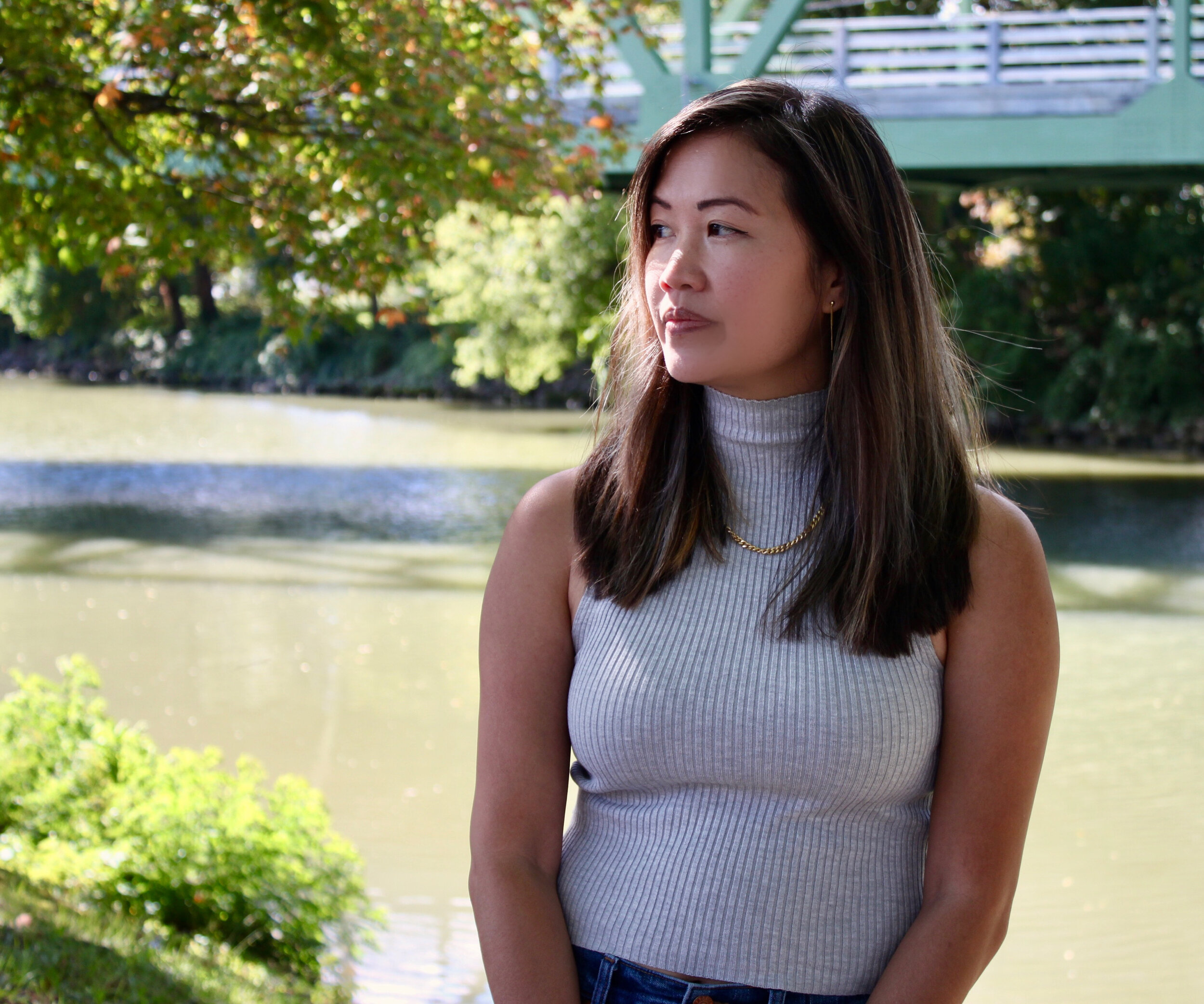Linh Phillips
“One of the ways that helped heal me was understanding that there is power in vulnerability. I used to look at it as a sign of weakness and hold my head in shame, but having the courage to acknowledge your feelings, to tell others you are not ok, and to seek help when you need it most….there is courage in that.”
NAMI: Have you ever had any mental health struggles? Do you live with a diagnosis?
LP: I have never had a formal mental health diagnosis. What I can say is that I have gone through periods in my life filled with darkness, anxiety and sadness. One of the heaviest times in my life was when I was experiencing infertility struggles and felt broken & lonely with my emotions in a very fragile state. I needed to lean on my support system more than ever, as well as my faith to help me cope with the emotional rollercoaster I was on.
NAMI: How have you healed and grown from your experiences? If you consider yourself in recovery from something, what does recovery mean to you?
LP: One of the ways that helped heal me was understanding that there is power in vulnerability. I used to look at it as a sign of weakness and hold my head in shame, but having the courage to acknowledge your feelings, to tell others you are not ok, and to seek help when you need it most….there is courage in that. I am finding that healing can be a slow process and the road to recovery is one that is ongoing. For me, recovery meant I was able to find growth in unexpected ways. Sharing my infertility story publicly, opened up my mind and heart. Many women reached out directly to me, to share their own stories and past/current struggles. I have never felt more seen than in hearing their stories. Brene Brown said that “One day you will tell your story of how you overcame what you went through and it will be someone else’s survival guide.”
NAMI: How do you practice self-care and protect your mental health?
LP: I think from the outside in, it’s easy to see the highlight reel and perceive that I am living the good life & going out to eat to all these fun places. What you don’t see is that I have a full-time job outside of Sir Rocha Says, that I’m a new mom navigating life with a toddler who wants and needs my full attention, that I deal with insecurities and a constant inner critic in my head, and that I feel an enormous pressure to do everything successfully. I wish I could do it all, but the reality is that I can’t. When I am feeling overwhelmed, and can feel the anxiety building, I know I need time to just breathe. I need to show up for myself first so that I can show up for everyone else. That can mean taking a social media break or saying no to things as I need to invest my energy wisely. I dedicate time to put my mental health first with activities that feed my soul and re-energize me. This could be taking a hike outside, reading books that fill me up with words of affirmation, or connecting with friends who I know I can be real with. With the effects of the pandemic, it is even more critical than ever to prioritize your mental health.
NAMI: What is the general feeling about mental health and mental illness in Vietnamese culture? Is it taboo? In your experience, how is it usually addressed/dealt with?
LP: Growing up in my culture, talking about your emotions or mental health was definitely taboo. I grew up learning to suppress my emotions and figure out a way to ‘get over it’. There was a reluctance to seek out. Back then, mental health overall was deeply stigmatized, and while today it is more openly discussed, there is still room to normalize the conversation.
Moving into adulthood, pushing my feelings aside was not healthy for me, it just exacerbated the problems at hand. It has taken time, but I now know how to recognize what triggers me and express my emotions in real time. I’m still learning, but proud that I am continually learning and on this journey of self growth.
NAMI: Does being a first generation American come with any mental health struggles for you?
LP: We touched on how discussing mental health concerns was not the norm in my culture, and in turn, that led to denying any struggles I had at the time — which, reflecting back, I definitely struggled. In my youth, I struggled with my cultural identity, and remember how badly I wanted to fit in with my peers. As a first generation Vietnamese American, there was this duality with not feeling Vietnamese enough or American enough. I felt shame in my heritage, especially when kids would make fun of my ’slanty eyes’ or assume I was Chinese before even asking. Over time, I would develop a strong bicultural sense of self and become deeply connected to my roots. I got to visit Vietnam for the first time back in 2010, and fell in love with the culture. It was emotional thinking about the sacrifices my parents made to leave their country, so our family could live the American dream. Today, I stand proud to be a first generation Vietnamese American. I am proud of my parents and their heroic story immigrating over here from Vietnam. I am proud of the shape of my eyes and nose as it tells the story of my ancestors. I am proud that my baby boy will get to know his culture and hold his head up high. I’ve shared this on @sirrochasays and I think it’s important to share again and again. Shout to my entire AAPI community and for those struggling with mental health, please know you are not alone.
Let’s keep talking, keep sharing, and supporting the mental health revolution!



